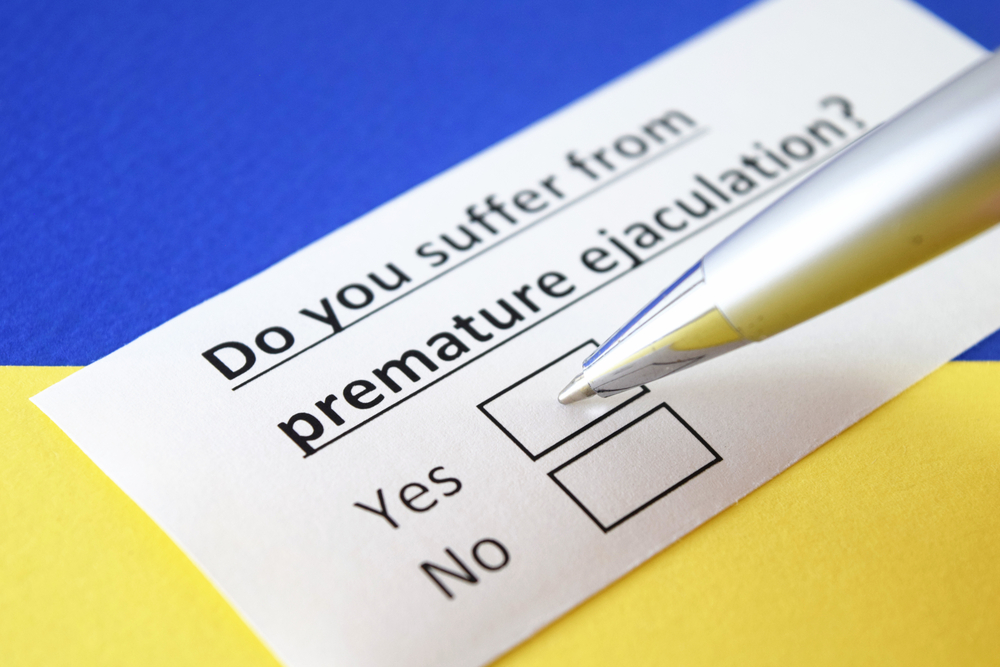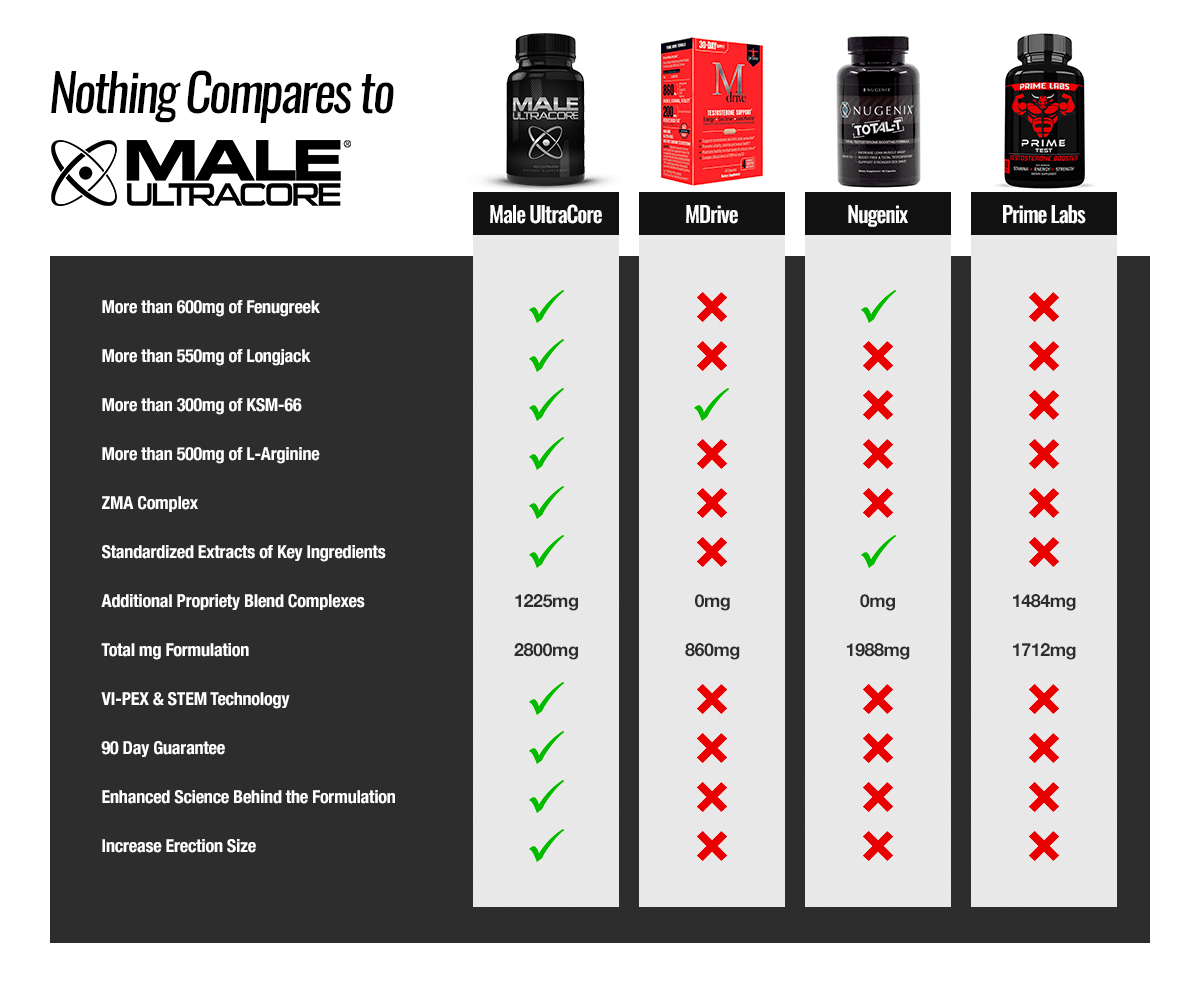Of all the sexual disorders, premature ejaculation is considered the most prevalent, affecting as many as 30%-40% of the male population. You may have experienced it, too. But if it happened just occasionally, then you shouldn’t be overly concerned about it.
However, there are those who consistently climax prematurely within less than five minutes of sexual penetration. For these men, premature ejaculation is both an embarrassing and frustrating condition. If you’re also struggling with premature ejaculation and wondering whether you can stop it, continue reading.
Overview
When a man ejaculates during sex much sooner than he or his partner would have liked, we usually refer to it as premature ejaculation. However, in clinical terms, premature ejaculation is defined as the persistent pattern of ejaculating within a minute after vaginal ejaculation, happening for at least 6 months, and accompanied by significant distress.
Furthermore, premature ejaculation is classified into two types, namely lifelong premature ejaculation and acquired premature ejaculation. Lifelong premature ejaculation means the problem has always been happening, dating back to your early sexual interactions.
Acquired premature ejaculation means you used to be able to control or delay your ejaculation. It could also mean that your latency time between vaginal penetration and ejaculation has significantly decreased to around 3 minutes or less.
Possible Causes of Premature Ejaculation
Doctors in the past believed that premature ejaculation only happened due to psychological reasons. At present, though, doctors recognize that both biological and psychological factors contribute to the problem.
Psychological factors that may contribute to premature ejaculation include poor body image and depression. Your doctor may also ask about your early sexual experiences and if you have a history of sexual abuse to determine if those factors are also contributing to your ejaculatory disorder.

Stress, sexual performance anxiety, and worrying about your ability to control your ejaculation may also cause you to ejaculate prematurely. Psychologists also consider relationship problems, guilt, religious upbringing, and feelings of shame as common psychological factors that can cause premature ejaculation.
On the one hand, biological factors that can result in premature ejaculation include hormonal imbalance, abnormal levels of neurotransmitters, and health problems related to the urethra or prostate gland.
Erection problems can also result in premature ejaculation, particularly if you’re worried about losing your erection during sex. When you’re having difficulties keeping your penis hard, you may unconsciously hurry through sex and ejaculate prematurely.
Can Premature Ejaculation Be Treated?
Several treatment options are currently available for men with ejaculatory disorders like premature ejaculation. Behavioral therapy and sex counseling are often recommended for those whose premature ejaculation is caused by psychological factors.
Behavioral techniques that are commonly used to treat premature ejaculation include the pause-squeeze technique and the stop-start technique. With the pause-squeeze technique, you may need your partner’s help, but it’s fairly straightforward.
During sex, when you feel like you’re about to ejaculate already, you need to pause and stop all sexual stimulation. Then you have your partner squeeze the head of your penis at the point where your glans joins your shaft. Your partner should continue squeezing until you no longer feel the urge to ejaculate.
The idea behind the stop-start technique is also fairly simple. You have sex with your partner and simply stop when you feel the urge to ejaculate. You should wait until the urge completely disappears before you continue having sex. Once you master this technique, you should be able to control the timing of your ejaculation.
Pelvic floor exercises, most commonly referred to as Kegel exercises, are also recommended for men with ejaculatory disorders. These exercises help your pelvic floor muscles to become stronger, which will then enable you to stop yourself from ejaculating.
Identifying the right muscles is crucial when you try to do Kegel exercises. You can do so by trying to stop your urine flow mid-stream. The muscles that you need to use to stop your ejaculation are actually the same ones that you use when you try to stop the flow of your urine.
Once you’ve identified your pelvic floor muscles, you can exercise them by repeatedly tightening and relaxing those muscles. Keep your pelvic floor muscles tightened for at least three seconds, and then you can relax them.
You can do this exercise in as many repetitions as you’re comfortable with. As you continue doing Kegel exercises, you can lengthen the interval as you wish. Kegel exercises are actually considered as an excellent way to gain control over your ejaculation.

Certain medications can also be used to help treat premature ejaculation. Topical anesthetics that contain lidocaine, benzocaine, or prilocaine may also be helpful for men with premature ejaculation problems.
The active ingredients in these creams or sprays are numbing agents, which means they reduce penile sensations. Because of the numbing effect, topical anesthetics basically prevent you from ejaculating prematurely by making you feel less sexually excited. However, that can also affect your sexual satisfaction, so you may want to try other medications.
In addition, lidocaine sprays and other topical anesthetics may also cause mild pain and burning sensation in your penis. If you’re not wearing a condom, the topical anesthetic can also get transferred to your partner’s vagina, making your partner less sensitive to sexual stimulation.
At present, there are yet no FDA-approved oral medications for the treatment of premature ejaculation. However, doctors sometimes use other prescription medications off-label to help men delay ejaculation.
Certain SSRI antidepressants, for instance, are commonly used to treat premature ejaculation. These include paroxetine and fluoxetine. Studies show that these antidepressants have several adverse sexual effects, including delayed orgasm.
SSRIs basically allow you to maintain high levels of bioavailable serotonin in your brain. Serotonin is a neurotransmitter that has an inhibitory effect on ejaculation. This is why doctors sometimes prescribe SSRIs to men with premature ejaculation.
The Bottom Line
You don’t have to continue suffering due to premature ejaculation. Although you may feel embarrassed to discuss your ejaculatory problem with your doctor, you’ll be relieved to find out that you actually have several treatment options you can choose from. You can definitely put an end to premature ejaculation.
Increase Your Testosterone Levels with Testosterone Boosters
Male UltraCore is a premium testosterone boosting supplement that is designed to maximize test levels, increase your performance and drive, and give you harder and fuller erections. 





